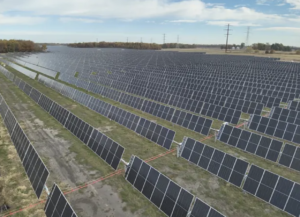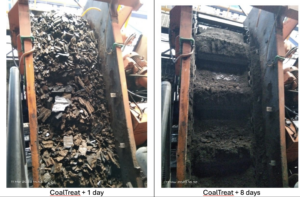When it comes to energy, the new Congress has a whole host of challenges and opportunities. But there is at least one complex challenge that has a straightforward solution. If we want a secure, reliable and affordable energy mix, we must modernize our nation’s energy grid.
U.S. Sens. Bob Corker (R-Tenn.) and Ron Wyden (D-Ore.) recently introduced S. 400, which would significantly impair progress on that front and put up significant roadblocks to private investment in our nation’s electricity infrastructure. This bill would not only deny consumers all of the benefits of new transmission—along with increased efficiency, access to a broader energy mix, and lower costs—it would also prevent all of the economic activity that goes along with building transmission.
The Corker-Wyden anti-transmission bill seeks to undo a rational and much needed rule the Federal Energy Regulatory Commission (FERC) plans to finalize soon. This rule would remove roadblocks to building new transmission by allowing planners to fully consider inter-regional transmission lines and share the costs of building them, if doing so would benefit consumers through lower prices, reduced congestion and better access to inexpensive renewable energy. Specifically, the rule would require each region benefitting from an inter-regional line to pay its share of the cost, but would leave the specifics of how those costs are spread up to the regions themselves. Regional stakeholders will continue to develop cost allocation plans that are agreed to by their stakeholders, but will be better able to define who benefits from new transmission.
Critics of the new rule have put forth a number of misleading and inaccurate arguments in their efforts to defend the status quo. The controversy stirred by anti-transmission utilities is puzzling because utilities have traditionally spread transmission costs evenly across all ratepayers because high-voltage transmission lines benefit everyone.
The Northeast and Midwest blackout of 2003 provided dramatic evidence that power lines in one place can affect customers many states away. A tree branch brushing a power line in Ohio set in motion events leading to blackouts for 55 million customers in eight states and Canada—and costs exceeding $10 billion.
The Bush administration’s 2002 National Transmission Grid Report described the modern electric grid as "an interstate highway system for wholesale electricity commerce." Like our interstate highway system, the improvements necessary to ensure security and reliability will require cooperation in the form of multi-regional planning and a financial investment from all of us. Plus, this will bring more energy options to customers, suppliers and manufacturers.
An improved transmission network will efficiently transport that energy and open up energy monopolies to wholesale market competition—which is the real reason behind why this backward-thinking measure was introduced.
Incumbent utilities are seeking to protect their own generation sources from competition, slow down cost-effective renewable energy development, and force consumers and businesses to pay billions of dollars each year in unnecessary congestion costs. These practices are forcing consumers to buy expensive power while keeping cleaner and cheaper alternatives out of the market.
But this is not just about renewable energy. No matter what generation sources we want to tap into—clean coal, renewables, nuclear or natural gas—we must have a reliable, modernized transmission system to get that power to consumers.
Critics of rational cost allocation are intentionally muddying the waters around this debate because the facts are not on their side. The cost of transmission is the smallest part of a consumer’s electric bill—less than 10 percent on average. Electric generation by utilities takes up roughly two-thirds of a typical bill.
The real problem Congress should be tackling is finding ways to give consumers more options to a broader energy mix by passing a clean energy standard. In addition to informing the planning process for transmission, it will move us more quickly toward a robust electricity grid that will deliver increased reliability and energy savings to every American.
—Joseph Welch is chairman, president and chief executive officer of ITC Corp., the nation’s largest independent transmission operator. This commentary originally appeared in The Energy Daily.








